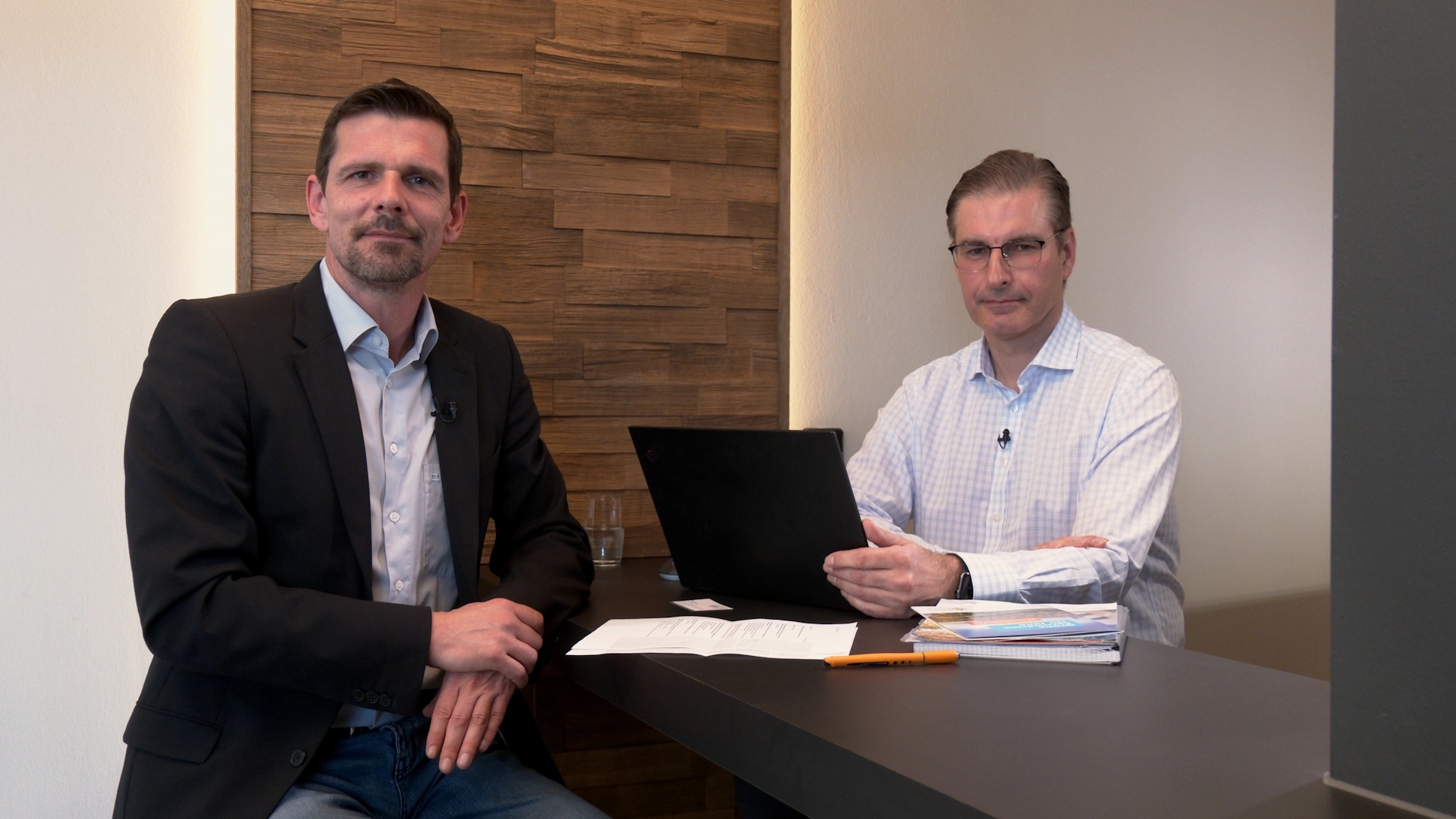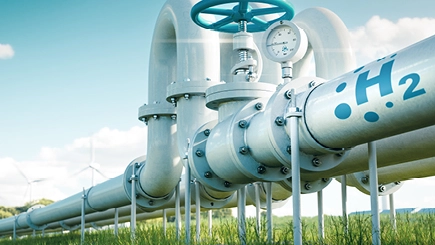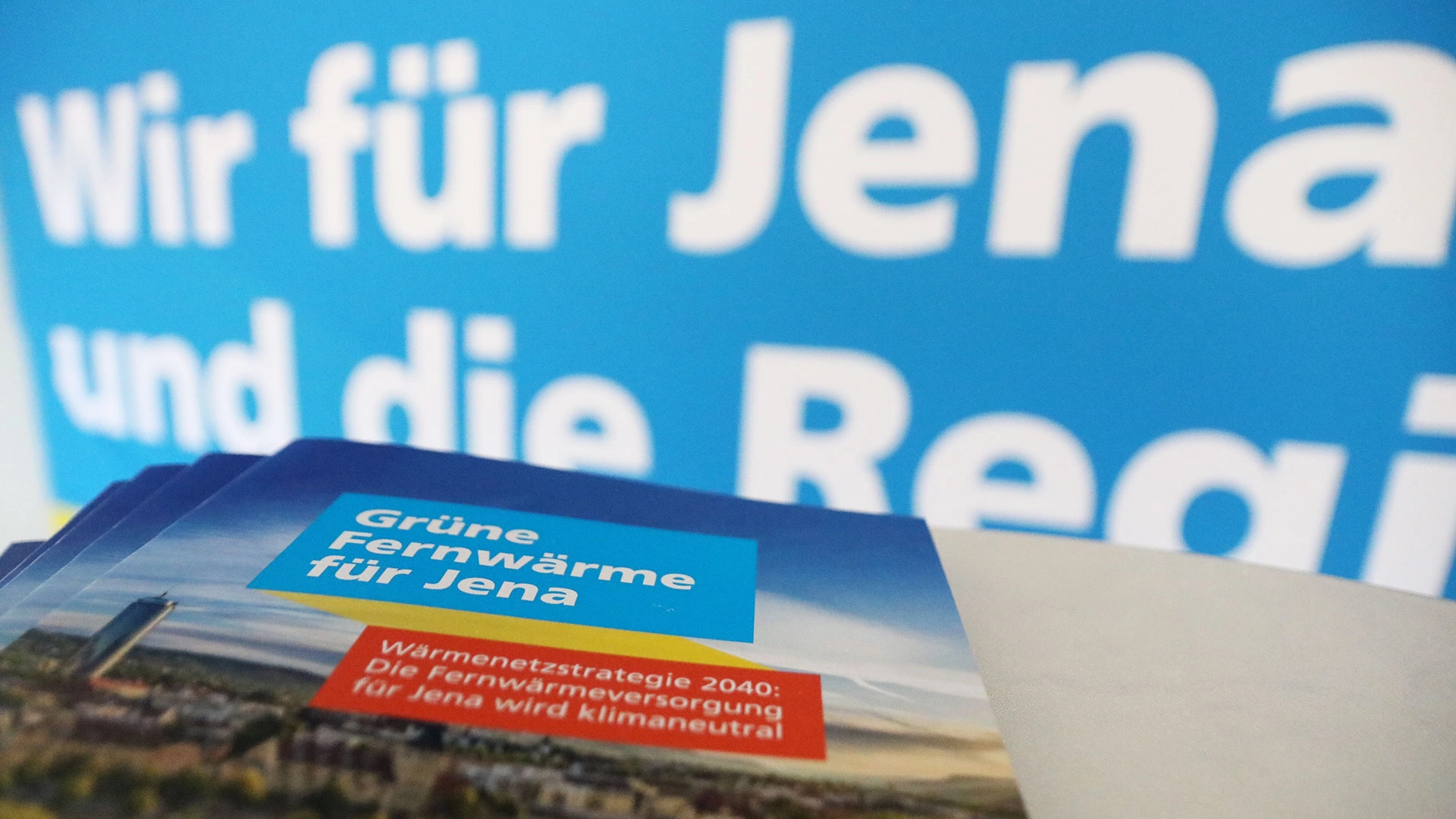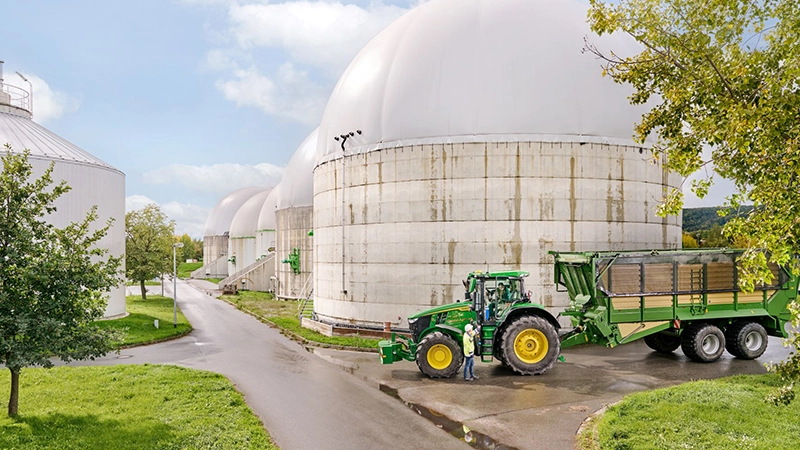Heating with district heating: how does it work and how much does it cost?
Supplying more people with (green) district heating is seen as the key to the success of the heat transition in cities. In Jena, 56 percent of households are already heated with district heating from Stadtwerke Energie Jena-Pößneck. And this figure is set to rise significantly by 2040.
In fact, there are many advantages to district heating: it is generated in an environmentally friendly way, customers do not have to worry about their own technology in the cellar or the cheap procurement of fuel. And above all: Compared to other forms of heating, district heating is quite inexpensive and, in the long term, of course much cheaper than fossil natural gas or oil.
But how exactly does district heating work? How do you get it? And above all: Where in Jena is district heating available today and in the future? We answer these and, of course, the big question about the costs of district heating in this part of the energy transition series. This time, Helge Gerullis, Head of Business Customer Sales at Stadtwerke Energie Jena-Pößneck, answers Christian Uhlmann's questions.
Heating with district heating: how does it work and what does it cost?
Interview with our expert Helge Gerullis.
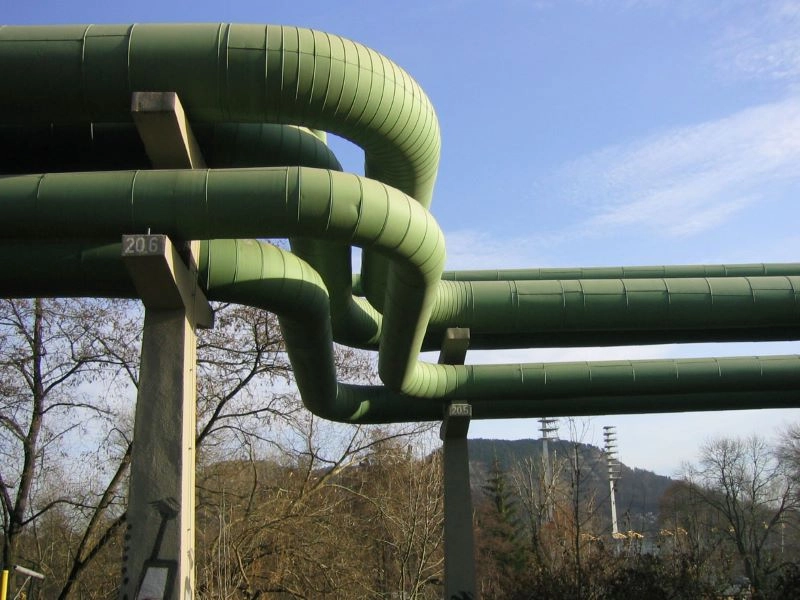
Wärmenetzstrategie 2040
Together with Thüringer Energie AG, we are developing a strategy for the decarbonization of Jena's district heating supply.
The core is the conversion of district heating generation at the Winzerla CHP plant. The aim is to use environmental heat.
Find out more hereHeating with district heating: how does it work and how much does it cost?
Supplying more people with (green) district heating is seen as the key to the success of the heat transition in cities. In Jena, 56 percent of households are already heated with district heating from Stadtwerke Energie Jena-Pößneck. And this figure is set to rise significantly by 2040.
In fact, there are many advantages to district heating: it is generated in an environmentally friendly way, customers do not have to worry about their own technology in the cellar or the cheap procurement of fuel. And above all: Compared to other forms of heating, district heating is quite inexpensive and, in the long term, of course much cheaper than fossil natural gas or oil.
But how exactly does district heating work? How do you get it? And above all: Where in Jena is district heating available today and in the future? We answer these and, of course, the big question about the costs of district heating in this part of the energy transition series. This time, Helge Gerullis, Head of Business Customer Sales at Stadtwerke Energie Jena-Pößneck, answers Christian Uhlmann's questions.
Heating with district heating: how does it work and what does it cost?
Interview with our expert Helge Gerullis.

Wärmenetzstrategie 2040
Together with Thüringer Energie AG, we are developing a strategy for the decarbonization of Jena's district heating supply.
The core is the conversion of district heating generation at the Winzerla CHP plant. The aim is to use environmental heat.
Find out more here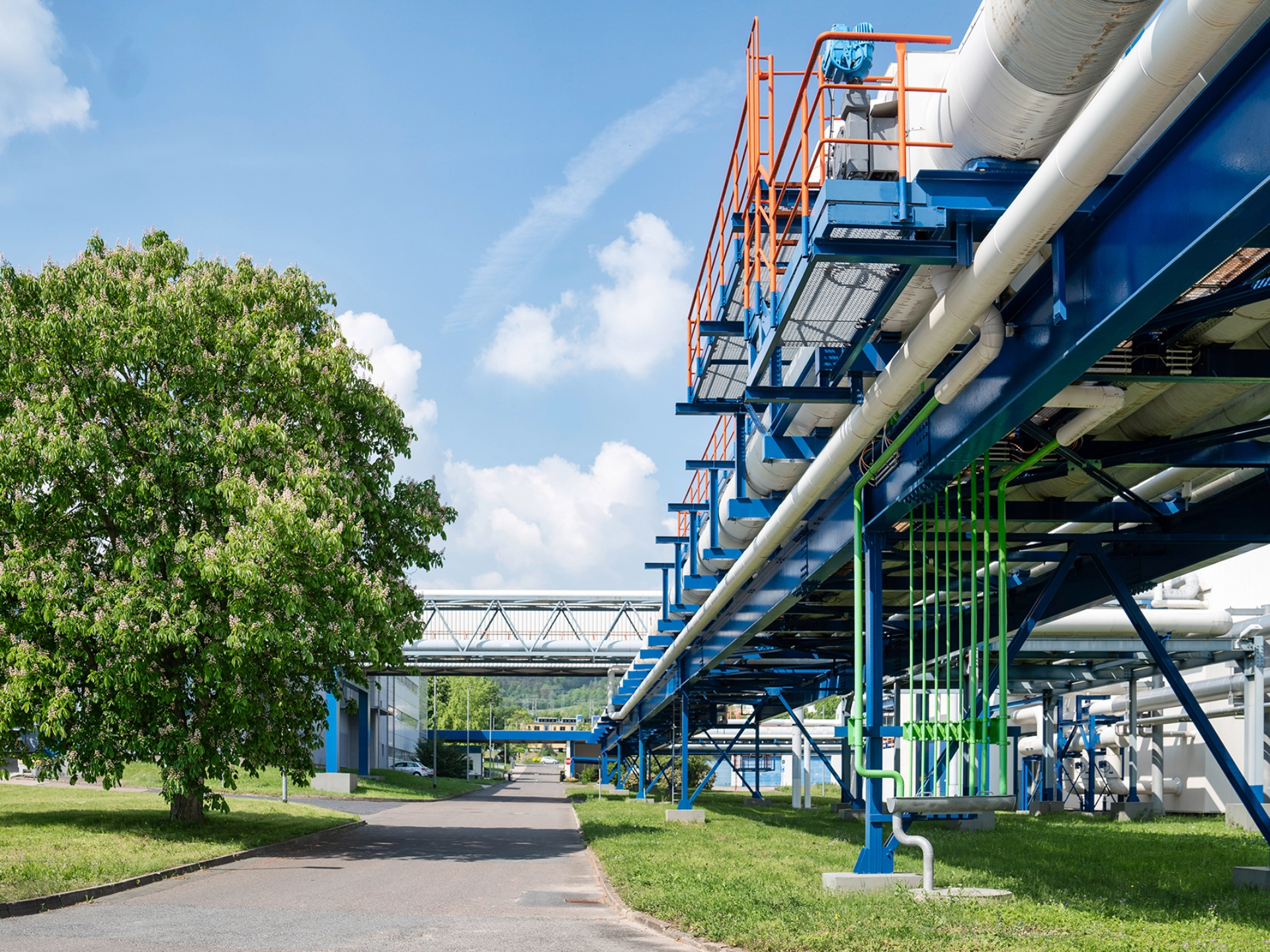
Wärmenetzstrategie 2040
Together with Thüringer Energie AG, we are developing a strategy for the decarbonization of Jena's district heating supply.
The core is the conversion of district heating generation at the Winzerla CHP plant. The aim is to use environmental heat.
Find out more here
What are your questions regarding the energy transition?
Ask us your questions anonymously via the online-form.

100% electricity for all customers: Already since 2013
Stadtwerke Energie Jena-Pößneck supplies its household and commercial customers exclusively with TÜV-certified green electricity. This comes 100% from European hydropower, some of it even from local plants along the Saale river. A fixed amount flows into the expansion of renewable energies every year.


